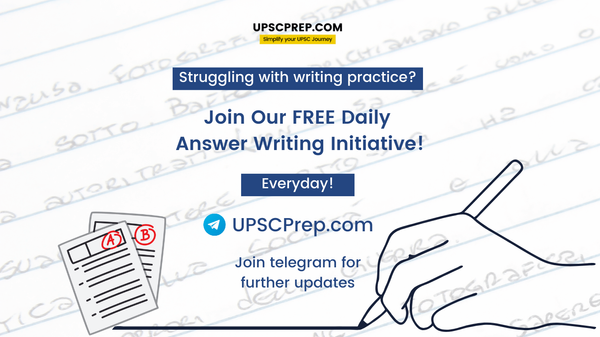Subject: GS 4
Syllabus: Ethics and Human Interface
Questions
- Objectivity and empathy are two very desirable traits from a civil servant. Explain the meaning of the term objectivity and discuss its relationship with empathy? (150 Words, 10 Marks)
- A poorly managed ‘perceived’ conflict of interest can be just as damaging as an ‘actual’ conflict of interest. Public servants must not only behave ethically but also be seen to behave ethically. Discuss with the help of examples. (150 words, 10 Marks)
Download Model Structures PDF
Model Structures
Q1. Objectivity and empathy are two very desirable traits from a civil servant. Explain the meaning of the term objectivity and discuss its relationship with empathy? (150 words)
Introduction
- As per Nolan committee, objectivity refers to carrying public businesses like public appointments, awarding contracts and making recommendations purely on basis of merits. It leads to impartial decisions devoid of any biases.
Main body
- As per globally accepted civil services standards, objectivity means-
- Giving evidence based information and advice to the government without meddling with facts.
- Giving utmost importance to professional and expert advice.
- All public officials should not overlook uneasy facts and considerations.
- Empathy means competence in social awareness and a person’s ability to connect with others. It ranges from understanding the situation to creation and promoting the environment of mutual respect.
- Hence empathy fosters human connection and trust and allows us to see others as comrades rather than competitors.
- Empathetic civil servants understand people’s perspective.
- Objectivity and empathy complement each other making civil servants act in a compassionate manner while taking a balanced view.
- It means that they are passionate about their service and dispassionate about the profile of people they are serving.
- For instance, like in the public distribution system, authorities provide services for the sake of provisioning without keeping in mind the ultimate objective of public welfare. Civil servants need to imbibe better understanding of whom to serve- their aspirations, needs and living conditions.
Conclusion
- Hence objectivity and empathy is the need of the hour which involves being mindful of one's own emotional response while practicing compassion. It is the main crux of the antyodaya approach, which means leaving no one behind and results in national integration and inclusive development.
Q2. A poorly managed ‘perceived’ conflict of interest can be just as damaging as an ‘actual’ conflict of interest. Public servants must not only behave ethically but also be seen to behave ethically. Discuss with the help of examples. (150 words)
Introduction
- A conflict of interest involves a conflict between a public official’s duty to serve the public interest, and their private interest.
Main body
- There are three main types of conflict of interest to be aware of-
- Actual conflict- when an officer is in a position to be influenced by their private interests.
- Perceived conflict- when an officer is in a position to appear to be influenced.
- Potential conflict- when an officer may be influenced in the future by private interests.
- Both means and ends are important for a civil servant and they must not only behave ethically but also be seen to behave ethically.
- A judge must recuse from a case which involves any of his relatives as one of the party. Even if the verdict is given with utmost objectivity, the other party will still feel a sense of injustice.
- This is the reason why civil servants are not posted in home districts and states. Because more familiar people in the home district means more chances of actual, potential or perceived conflict of interest.
- These conflicting situations can be better handled by-
- More transparent and objective decision making and timely declaration of any conflict to reduce discretion.
- High standards of ethical conduct like impartiality, efficiency, professionalism and integrity can help address conflict of interest situations.
Conclusion
- Civil service is a service of vocation and civil servants have a moral obligation to exercise authority in public interest. This helps foster trust between authority and citizens thus enhancing social contract for effective governance.

Write UnLimited Course (1 Year)
Write answers from any source, we will evaluate them for you.
